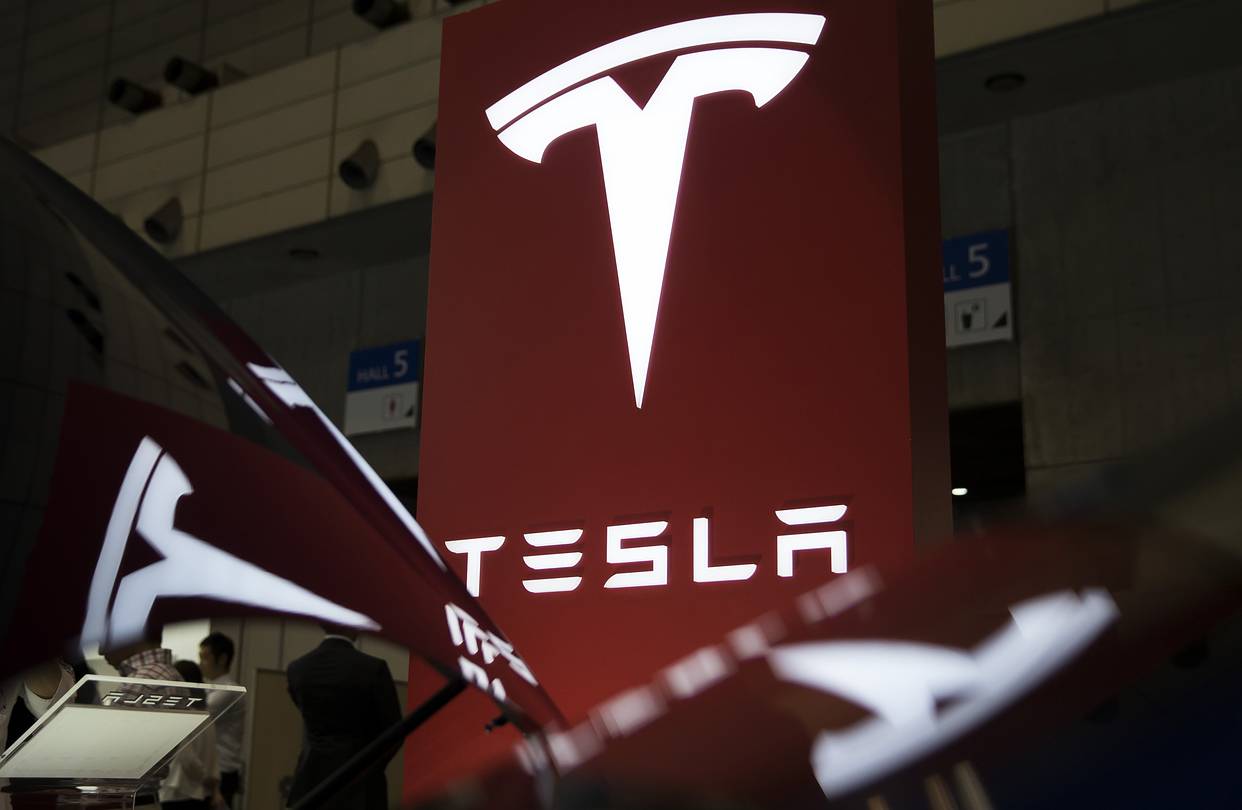Tesla’s Bitcoin Holdings Surpass $1 Billion Again Amid Crypto Rally
12.11.2024 14:00 1 min. read
Tesla's early investment in Bitcoin has turned out to be a profitable move, with the automaker’s cryptocurrency holdings now exceeding $1 billion.
Currently, Tesla owns 11,509 BTC, whose value has surged as Bitcoin reached an all-time high of $89,560, according to Arkham Intelligence.
In 2021, Tesla announced a $1.5 billion Bitcoin purchase, aiming to diversify its assets and enhance returns, as stated in an SEC filing. As of November, Tesla’s Bitcoin holdings have yielded nearly $495 million in gains, boosted by the cryptocurrency’s revival this year.
This increase stems from Bitcoin’s rally rather than any recent purchases by Tesla. Bitcoin’s market cap has also reached $1.75 trillion, surpassing silver in global rankings, as institutional enthusiasm grows with anticipation of U.S. Bitcoin ETFs and a favorable political landscape.
Tesla’s stock has mirrored this momentum, rising 8% in after-hours trading to $350. Over the past month, Bitcoin’s value climbed by more than 40%, now trading around $88,768.81. Since the election, Tesla’s market cap has jumped nearly 39%, boosting Elon Musk’s net worth to $320 billion.
Tesla transferred its Bitcoin last month, a move analysts believe was only a routine wallet reorganization, not a sale. This marked the first activity in two years, with Tesla shifting around $765 million in Bitcoin to several new wallets, which are still linked to the company.
-
1
Veteran Trader Peter Brandt Shares Simple Wealth Strategy with Bitcoin at Its Core
30.06.2025 15:00 2 min. read -
2
Bitcoin Tops Crypto Social Buzz as $110,000 Milestone Fuels Market Debate
04.07.2025 8:15 3 min. read -
3
Mysterious $8.6B Bitcoin Transfer Sparks Speculation Over Satoshi-Era Wealth
05.07.2025 15:00 3 min. read -
4
10,000 Dormant Bitcoin Moved After 14 Years: Volatility Ahead?
04.07.2025 20:00 2 min. read -
5
UniCredit to Launch Structured Product Tied to BlackRock’s Spot Bitcoin ETF
01.07.2025 17:53 1 min. read
U.S. Dollar Comes Onchain as GENIUS Act Ushers in Digital Era
In a statement that marks a major policy shift, U.S. Treasury Secretary Scott Bessent confirmed that blockchain technologies will play a central role in the future of American payments, with the U.S. dollar officially moving “onchain.”
JPMorgan Lawsuit Threatens Crypto Access and Open Banking Rights
JPMorgan and other major U.S. banks are under fire for a lawsuit aimed at dismantling the Consumer Financial Protection Bureau’s (CFPB) newly established “Open Banking Rule.”
UK to Sell Almost $7B in Seized Bitcoin as Treasury Eyes Crypto Boost
The United Kingdom’s Home Office is preparing to liquidate a massive cache of seized cryptocurrency—at least $7 billion worth of Bitcoin—according to a new report by The Telegraph.
Crypto’s Top Narratives in Focus, According to AI
A fresh breakdown from CoinMarketCap’s AI-powered narrative tracker reveals the four most influential crypto trends currently shaping the market: BTCFi & DePIN, U.S. regulatory breakthroughs, AI agent economies, and real-world asset (RWA) tokenization.
-
1
Veteran Trader Peter Brandt Shares Simple Wealth Strategy with Bitcoin at Its Core
30.06.2025 15:00 2 min. read -
2
Bitcoin Tops Crypto Social Buzz as $110,000 Milestone Fuels Market Debate
04.07.2025 8:15 3 min. read -
3
Mysterious $8.6B Bitcoin Transfer Sparks Speculation Over Satoshi-Era Wealth
05.07.2025 15:00 3 min. read -
4
10,000 Dormant Bitcoin Moved After 14 Years: Volatility Ahead?
04.07.2025 20:00 2 min. read -
5
UniCredit to Launch Structured Product Tied to BlackRock’s Spot Bitcoin ETF
01.07.2025 17:53 1 min. read


